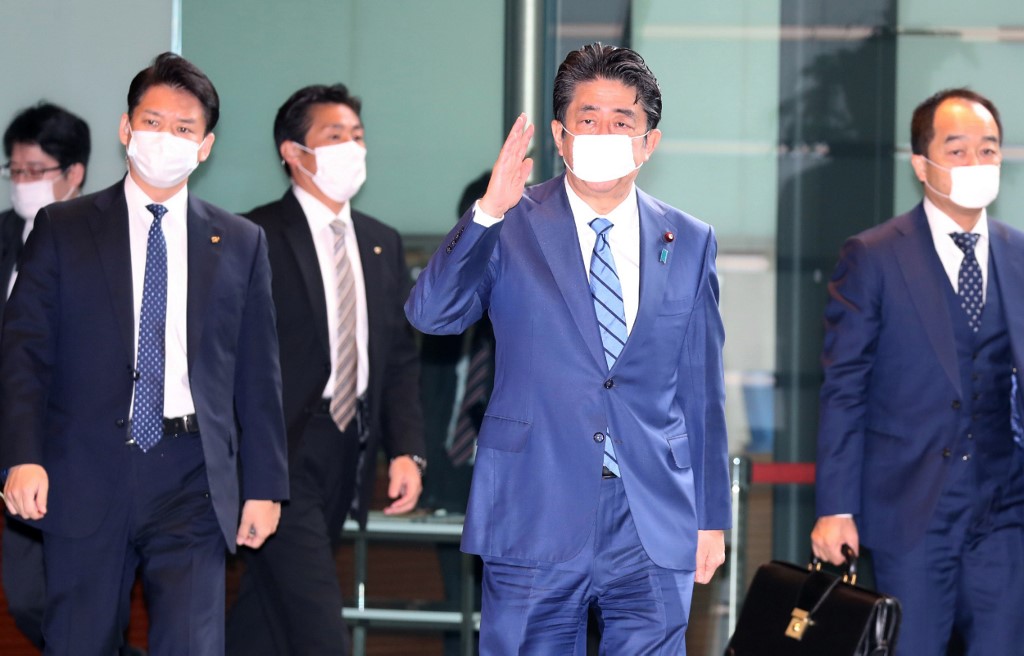(ATF) Asian markets have opened on a broadly firm note in a week where investors will be guided by earnings, central bank meetings and purchase manager index surveys from major economies.
The Nikkei 225 is up 2.16% after the Bank of Japan announced steps to ease corporate financing strains while keeping policy rates unchanged at -0.1%. The central bank said it will buy more corporate bonds and commercial paper boosting its total holdings of both asset classes to 20 trillion yen from 5 trillion. Its outlook revealed GDP growth forecast in the fiscal year that started on 1st April ranged from -5.0% to -3.0%
“Given that the Bank didn’t lower its policy rate in response to that grim outlook, the chances of a rate cut are diminishing,” Marcel Thieliant, senior Japan economist at Capital Economics, said.
Elsewhere, the Hang Seng index is 1.48% higher and Korea’s Kospi benchmark has advanced 1.6%. China’s main stocks benchmark the CSI 300 has risen 1.1% even as it reported profits at the big industrial firms collapsed in the first quarter of the year. Australia’s S&P ASX 200 is 0.3% up, building on last week’s gains when the commodities sector received a boost from the spike in oil prices.
Prolonged lockdowns
As markets brace for a string of horrific data releases, prolonged lockdowns could compound investor worries.
“Extension of containment measures around the region now endangers a steeper economic dip than we earlier thought,” ING analysts said in a report.
It noted governments in Singapore, Malaysia, Indonesia and the Philippines extended ongoing movement restrictions further “as the spread of the pandemic shows few signs of abating and, in fact, has become significantly worse in places like Singapore and Indonesia.”
The global infections count is now approaching 3 million cases and a total of over 206,000 deaths have been reported.
“All this boils down to suggestions that we are likely to see a much deeper economic slump in the region this quarter and a more stretched out recovery than we thought earlier. China’s 6.8% YoY GDP fall in the first quarter provides a sense of what we should be expecting from the rest of the region,” ING economists said.
Credit markets have opened flat but the mood is constructive as global bond offerings from Asia have started to trickle in with the Philippines setting price guidance for a 10-, 25-year dollar-denominated bond offering, which is expected to price later today.
Among corporate borrowers, Korea East West Power announced price guidance for a 5-year dollar bond, Wharf Real Estate appointed banks to handle a potential Reg S dollar bond and Hutama Karya hired banks for a possible dollar-denominated Reg S/144A bond offering. The Asian IG series 33 index has opened unchanged at 123/125 bps.
Chinese high-yield bonds remain under pressure in the offshore market after the recent sell-off, which diverged with the direction of onshore markets. But investors are tiptoeing back eyeing attractive valuations.
“This divergence has created attractive investment opportunities in Chinese bonds for offshore credit investors. Chinese offshore Investment Grade credit has outperformed the rest of EM credit but has under-performed onshore high-grade credit and as a result provides fewer opportunities. Chinese offshore non-Investment Grade credit, on the other hand, has materially sold off creating some very attractive investment opportunities,” said Salman Niaz, Emerging Markets Fixed Income Portfolio Manager & Head of Asian Credit, Goldman Sachs Asset Management.
























